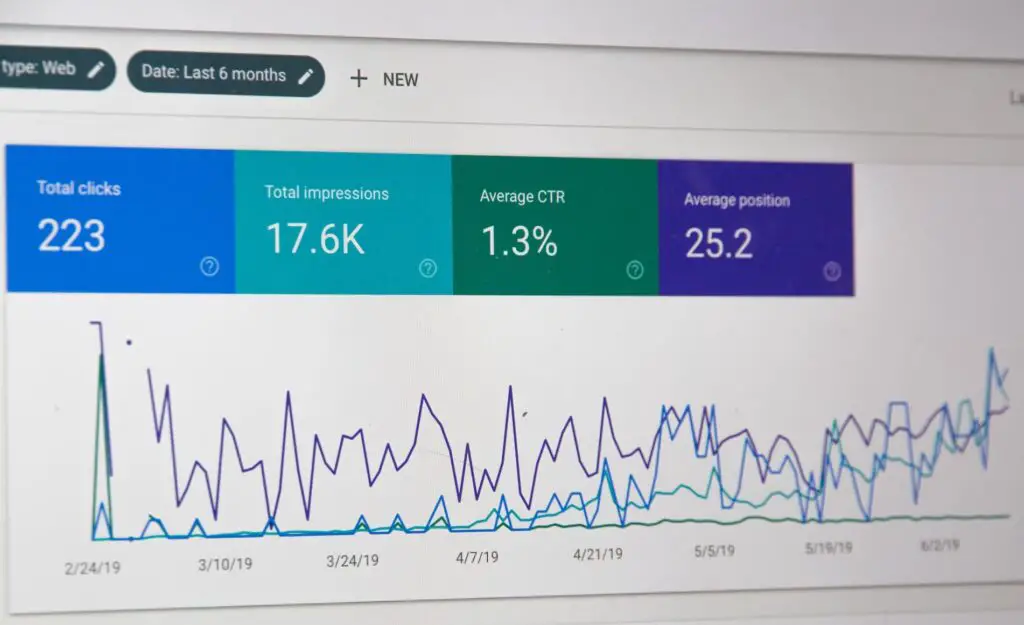Gone are the days when SEO was a simpler game, and you could rank high on SERPs with some keywords and backlinks. You didn’t have to worry about a plethora of factors and constant algorithm updates.

Unfortunately, we don’t have an official blueprint or checklist from Google for ranking factors that could have made the job easier. If you’ve heard the myth of ‘200 ranking factors’ from Google, don’t pay any attention to it. The myth probably originated from a speech delivered at PubCon 2009 by Matt Cutts. It’s a wonder that some of us are still discussing that.
Google and its ranking factors have nuanced significantly in the last 25 years, and there might be hundreds or even thousands of aspects and machine learning overlays that have come into play. We get glimpses of these aspects every time they update the Google documentation or key personnel like Gary Illyes, John Mueller, or Danny Sullivan release a comment.
However, whenever there’s an update, or we hear a comment from one of the key figures, SEO professionals like you and I get obsessed with the hidden meanings, don’t we? Unfortunately, this is a big issue for the entire SEO industry because we often mull over the wrong things and lose sight of the big picture.
For example, ranking factors are often scrutinized more than anything else. SEO professionals like you and I fixate too much on the semantic differences between ranking factors, systems, and signals, which is often unnecessary. Gary Illyes clarified at an Ask Me Anything session during the PubCon of September 2023 that the only difference between the three is language.
Anyway, since there are no definitive guidelines, you and I have no choice but to examine the updates released by Google and the comments made by the key figures if we want to stay on top of the game. So, let’s try to decode what you have learned in the last couple of months and understand how we can bring up our SEO games as we get closer to 2024.
Backlinks: Are They Out?
Let’s first address the elephant in the room. There’s a lot of concern surrounding the comment made by Gary Illyes during the September PubCon held in Austin. But surprisingly, I haven’t seen the amount of discussion on the internet as I had hoped for. I mean, he clearly shocked some of us when he said that backlinks get more importance than they deserve, and they haven’t been one of the top-ranking factors for some time now.
We know that backlinks have been instrumental in organic SEO strategies, so much so that there’s an entire industry that focuses solely on acquiring backlinks from trustworthy websites. Whether you’re an SEO freelancer or work at an SEO agency, you must have built backlinks for your clients at some point in your life. I know I have.
Backlinks gained importance back in 2016 when Andrey Lipattsev announced that external links are one of the top three ranking factors to appear higher on Google search results. They are like the equivalent of word-of-mouth recommendations that signal the credibility and authority of websites to search engines. But as First Page Marketing has accurately stated, all backlinks do not have the same effect on your ranking. The reputation and relevance of the source are crucial to the SEO boost you can expect.
The recent statement made by Gary Illyes was not out of the blue. Duy Nguyen from the Google Search Quality team Mentioned in November 2022 that the impact of backlinks has diminished significantly than before. Search Advocate John Mueller Also made a similar statement, saying that the weightage of links would be lowered in the Google Search ranking algorithms substantially.
If all of these statements are true, backlinks may not hold the same importance today as in 2016. As a matter of fact, Gary Illyes also mentioned that a website can rank higher on Google search pages without backlinks as long as they have quality content on the website and a sitemap that is easy to crawl. But does this mean that backlinks do not matter anymore?
I don’t think so. Even if backlinks are not one of the top three ranking factors, they still hold a lot of importance. I speculate that these announcements are connected to the overflow of AI-generated content with backlinks flooding the Internet. Google is definitely planning something to segregate the real high-quality backlinks from the masses. But that will take some time to materialize, so even though we may have to adjust our strategies, backlinks are still here for some time.
Moreover, we have seen instances in the past when public statements by Google’s key personnel did not align with the page ranking algorithm behaviors. I’m sure you all remember the debate regarding the significance of clicks in search rankings when a lot of SEO professionals accused Google of hiding the truth. I believe backlinks may not be in the top three ranking factors, but they can still send significant ranking signals for a website to rank higher. One of the ways that people also opt to rank higher is to embed Google Reviews on website.
Content: Still the King with a New Jewel on the Crown
Content continues to be the topmost ranking factor as long as the website is responsive and mapped well. Content quality is not just necessary to rank higher on search results, but it also helps elevate the user experience and boosts conversions. But how would you define content quality in 2023?
I’m sure you must have read that Google has added another jewel to the content’s crown. Experience, along with Expertise, Authoritativeness, and Trustworthiness, are not part of a direct system to aid ranking. However, you certainly cannot make your content rank higher without them anymore.
Earlier, Google’s Search Quality Raters Guidelines were guarded quite closely. But ever since the document leaked online, Google has made the updates public. E-E-A-T is a part of those guidelines that Quality Raters evaluate when they review the quality of website content.
E-E-A-T is crucial for all niches, especially Your Money Your Life (YMYL) niches like finance or health, where the content can directly affect someone’s life. The content must contain helpful and current information with examples of experience so they can help a person who’s looking for such information on the Internet.
But does that mean you shouldn’t be bothered about keywords anymore? That’s not true either. While we’ve established a while back that keyword stuffing gets penalized, your content should still contain relevant keywords. Otherwise, search engines would not be able to match the content to a user’s query. I believe titles and headings are best for keywords while focusing on providing recent, relevant information in the content.
The freshness of content is another crucial factor. Again, this one doesn’t have an impact on all niches but matters more when it comes to topics like news, weather, or stock prices. However, you will notice some ranking decay if you don’t update the content regularly, irrespective of your niche. Ideas and concepts are constantly evolving, and you have to match those to meet the changing expectations of users in today’s world or your website may be left behind on the search results.
Page Experience
Google rolled out the Page Experience update in 2021, but Core Web Vitals (CWV) were emphasized even before that as one of the prime factors to rank higher. After the update, CWV became part of a collective group of ranking signals that contribute to the overall page experience for a user.
Why is this important? Well, imagine you have all the right stuff on your website, but the pages take a long time to load, or it is not optimized to be viewed on the phone. That would severely hamper the overall user experience, right? If Google ranks such a website higher, that would spoil the user’s impression of your website and Google’s.
Page experience depends on 4 signals –
- Security – HTTPS instead of HTTP
- Page loading speed
- Cross-device compatibility
- Core Web Vitals
Page experience is not always the most important ranking factor, but it can be crucial in some cases. For example, if two pages qualify with the same information for a user query, Google will prioritize the one that offers a better page experience. After all, Google also wants to be ahead of its competitors, and page experience is key to user satisfaction.
Conclusion
Statements made by Google leaders and algorithm updates continue to rock the world of SEO professionals like you and me. On the one hand, the latest statement made by Gary Illyes made us question the validity of backlinks and the money and time we invested in them. On the other hand, the addition of Experience to E-A-T has us pondering over how to demonstrate the right qualities in content. As we roll into the last two months of 2023, we can expect similar changes in the coming year as well.
But if you ask me, these updates and statements make my job even more exciting and challenging and add to the fun. So, let’s buckle up, work on our strategies, and finish the year with the right SEO boost for our projects and campaigns. Who knows what awaits us in 2024, but I’m definitely looking forward to it.









0 Comments